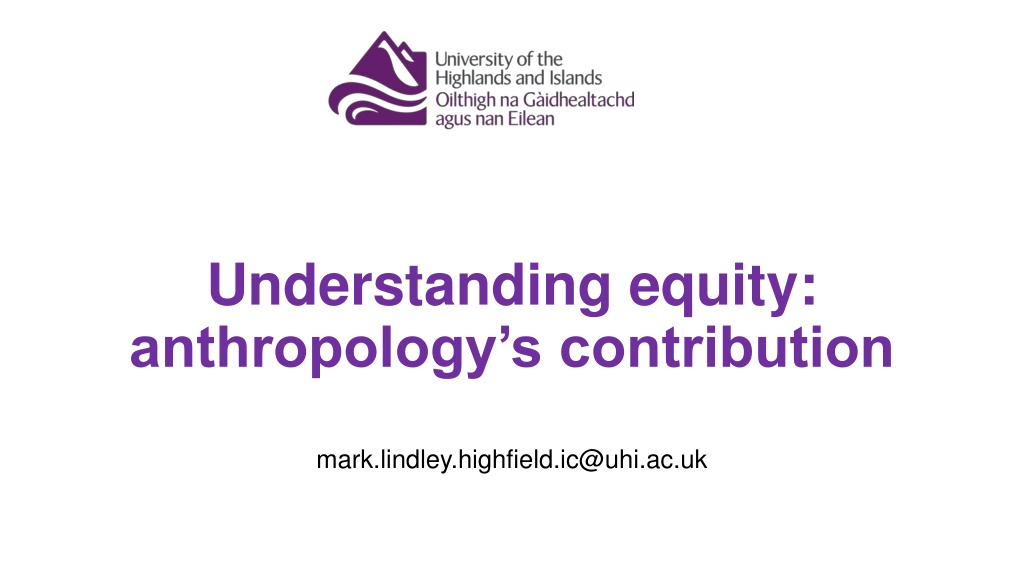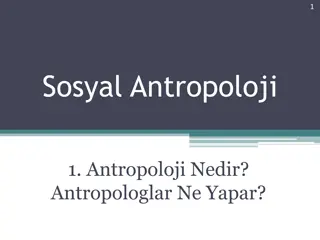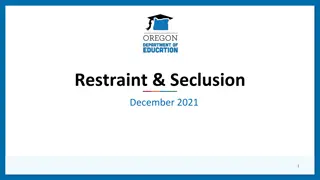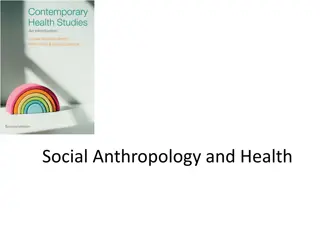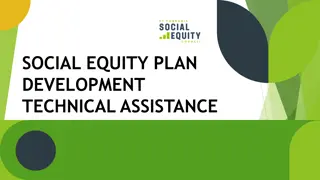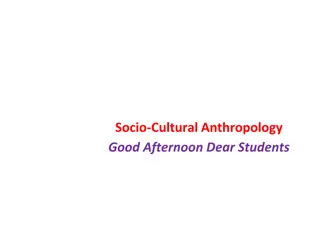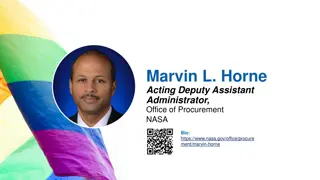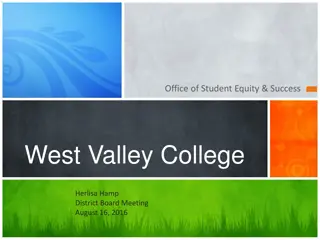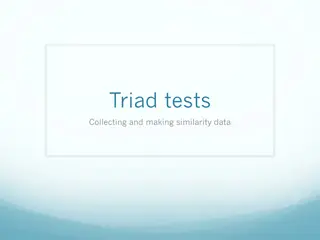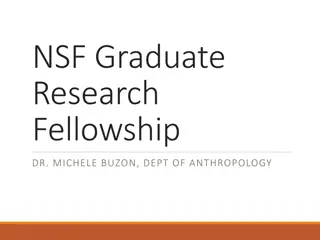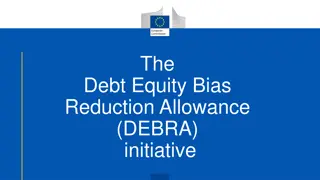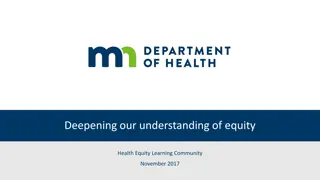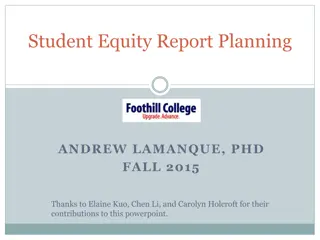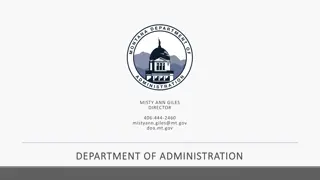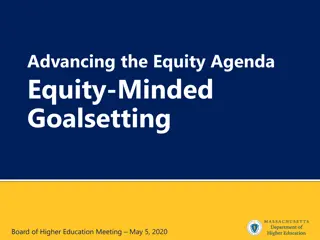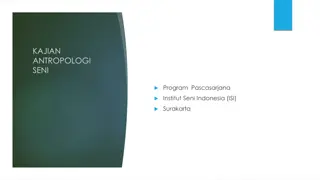Understanding Equity in Anthropology: Contributions and Challenges
Anthropology plays a crucial role in understanding and addressing issues of equity, particularly in education. In Scotland, initiatives such as the Scottish Attainment Challenge and Pupil Equity Funding aim to bridge the gap in educational outcomes for pupils from disadvantaged backgrounds. While these efforts target areas of need and leverage local expertise, criticisms point to challenges in effectively addressing diverse human needs. Equity, both in anthropology and broader society, focuses on fairness and remedial actions to counter discrimination.
Download Presentation

Please find below an Image/Link to download the presentation.
The content on the website is provided AS IS for your information and personal use only. It may not be sold, licensed, or shared on other websites without obtaining consent from the author. Download presentation by click this link. If you encounter any issues during the download, it is possible that the publisher has removed the file from their server.
E N D
Presentation Transcript
Understanding equity: anthropology s contribution mark.lindley.highfield.ic@uhi.ac.uk
Context Ellis and Sosu (2014) in a Joseph Rountree Foundation report presented evidence for a connection between deprivation and attainment for pupils in Scotland. The Scottish Government has specific targets to meet all 17 Sustainable Development Goals and clearly seeks to address issues of child poverty (relevant to SDGs 1, 3, 10 and 11) and has made commitments to provide an inclusive and equitable quality education (SDG 4). It acknowledges these as issues of inequality at home. In 2015, the First Minister launched the Scottish Attainment Challenge to support pupils in Scotland s local authorities with the highest levels of deprivation, including Glasgow, Dundee, Inverclyde, West Dunbartonshire, North Ayrshire, Clackmannanshire, North Lanarkshire, East Ayrshire and Renfrewshire (the Challenge Authorities ).
Context A 750 million Attainment Scotland Fund has been created to assist schools with pupils in deprivation, measured in terms of the number of pupils benefiting from free school meals, from Primary 1 to Secondary 3. This Pupil Equity Funding is awarded to the schools, whose Head Teachers in dialogue with their peers and their Local Authority determine how these funds should be applied. Bridging the Attainment Gap is concerned with the transformation of this inequity into a level playing field so that those from more economically disadvantaged backgrounds have a better opportunity to achieve their full potential.
Context Some positives of this approach include that this assistance is targeted at where it is seemingly most needed and that Head Teachers, who are responsible for the deployment of the funds, benefit from local knowledge. A criticism is that it is predicated on an economic model of development whereby, as Sen (2001) argues, such a resource-based approach can fail to meet heterogeneous human needs through a lack of responsiveness to human diversity. Such funds are readily consumed and thus spread thin in terms of the inequities they are able to address.
Notions of equity Picture courtesy of the Interaction Institute for Social Change
Notions of equity Equity is not a term unfamiliar to anthropology, indeed every year the American Anthropological Association recognises individuals with the Gender Equity Award for their efforts to counter discrimination and to raise the profile of women within anthropology and within human society more broadly. This use of the term acknowledges its remedial role. Oregon State University (2012) counsels its students that equity in anthropology is concerned with a people s views of the fairness of their institutions. The law of equity, particularly as it has been understood in England, has concerned itself with remedies related to fairness, such as seeking to restore someone to as close a position as they were before some situation occurred, preventing some action or other, or making the performance of a certain action obligatory. These principles are reflected in the common law of Scotland as possible remedies also and we might see Pupil Equity Funding as being used to try to put someone into the situation they might have been had they not experienced deprivation.
Attaining equity The deployment of the Pupil Equity Funding to raise the attainment of pupils from socially and economically deprived backgrounds can be focused quite narrowly. In one example, where disadvantaged pupils were underperforming in numeracy work, the funds were spent on bringing in a new Maths scheme so that there were more Maths resources to support those learners. Can this address years of undeveloped social capital and reduced opportunities? Bourdieu (1986) notes that access to social capital is not as simple as an economic remedy. In the context of seeking to meet the Sustainable Development Goals, Sen s (2001) call for us to explore the diversity of human experience is helpful, since we can try to identify a more subtle understanding of where inequity lies for different pupils and of appropriate functionings and capabilities.
Global citizens It is pleasing that, unlike its sister educational context of England, Scotland has subscribed for its pupils to engage in PISA assessments on global competence (Atack, 2018). This is a reflection of the Scottish education system s commitment to social justice and global citizenship, as seen in the obligation for teachers registered in Scotland to be: Embracing locally and globally the educational and social values of sustainability, equality and justice and recognising the rights and responsibilities of future as well as current generations. Committing to the principles of democracy and social justice through fair, transparent, inclusive and sustainable policies and practices in relation to: age, disability, gender and gender identity, race, ethnicity, religion and belief and sexual orientation. Valuing as well as respecting social, cultural and ecological diversity and promoting the principles and practices of local and global citizenship for all learners. Demonstrating a commitment to engaging learners in real world issues to enhance learning experiences and outcomes, and to encourage learning our way to a better future. (GTCS, 2012)
Global citizens These professional values commit Scottish practitioners to teaching their pupils about the varied social circumstances in which humans may be found at home and abroad. They learn of shared human rights, such as those espoused in the Sustainable Development Goals, but of heterogenous human experience, where reality is inequitable, such as the limited access to clean water in Malawi. The question is, in what form do the educators and the learners see development as needing to take place?
The contribution of anthropology In 2004, Ladson-Billings gave the George and Louise Spindler Award Lecture, highlighting the need for educational anthropology in Teacher Education. She notes among student teachers an individualisation of responsibility that discourages the recognition of external constraining factors, and also a fear to break down elements broadly identified by them as cultural . Anthropology promotes such depth of perception and interpretation. Ladson-Billings (2006) gives a pertinent example of how perceived equity can be constrained by inequitable factors: Our national narrative suggests that every individual has the opportunity to be president. But the empirical evidence suggests that people whose net worth is less than $1 million, who are of other than European descent, who are female, and who are not college educated are unlikely to sit in the Oval Office. Her analysis suggests that the student teachers would place the locus of responsibility for not becoming president on the individual s actions. Anthropology helps us to identify where interventions are needed and what kind of interventions these should be.
The contribution of anthropology Anthropology permits a critically supportive pedagogy of the concept of equity, where equity does not have to mean identical. In the context of attainment, a number of pupils from deprived backgrounds struggling with numeracy does not necessarily mean that there is just a need for improved numeracy resources, while these would certainly be beneficial. A human capability approach (cf Sen, 2001) would encourage us to examine constraints on making the most of such resources, such as mindset, as Dweck (2006) advocates, and entice us to address these. Cultural hegemony and western imperialism together write a picture of the world as a world of the developed and the developing . Such distinctions, if not suitably unentangled, can mirror notions of social and cultural evolution, particularly those hegemonic models that see this as a universal linear process. Anthropology allows us to untangle these intermingled understandings.
The contribution of anthropology It is positive to note that in the most recent round of development funding to support communities in Malawi, the Scottish Government has funded a Rural energy access through social enterprise and decentralisation project of Strathclyde University run in collaboration with the University of Malawi to develop local and sustainable renewable energy sources. We do not want a presumption that countries undergoing development have to repeat the same social evolutionary processes we have been through and therefore limit their access to the most beneficial processes and resources. Similarly, we want to ensure that those communities have the agency to deploy the resources effectively to fulfil their capabilities. Anthropology can encourage us to allow others to step ahead, becoming the pioneers of future developments rather than the followers of regressive footsteps through to progression.
Conclusion An anthropological approach helps us to realise that economic capital does not transform readily into other forms of capital. It highlights the need to explore heterogeneity at both local and global levels. A human capabilities approach can help us to identify constraining factors and to explore fully the capabilities to support. We need to unentangle presumptions about the nature and need for development to ensure that is it meaningful locally and not a furtherance of systemic inequalities on a global level. Teacher education should include educational anthropology to build practitioners understanding of the complexity of factors affecting pupils attainment and also global relations. Scotland is well placed to embrace these factors in light of its commitment to the Sustainable Development Goals and to reduce the poverty induced attainment gap.
References Atack, P. (2018) Global competence to be tested by OECD , The PIE News, electronic resource, available online at: https://thepienews.com/news/global-competence-added-to-oecd-pisa-test-of-global-students/ (accessed 10 January 2019). Bourdieu, P. (1986) The Forms of Capital , in Richardson, J. G. (ed.), Handbook of Theory and Research for the Sociology of Education, pp. 241-258. Dweck, C. S. (2006) Mindset: The new psychology of success, New York: Random House. GTCS (2012) Standards for Registration , electronic resource, available at: http://www.gtcs.org.uk/web/FILES/the-standards/standards-for- registration-1212.pdf (accessed 5 August 2019). Ladson-Billings, G. (2006) It s Not the Culture of Poverty, It s the Poverty of Culture: The Problem with Teacher Education, 2004 George and Louise Spindler Award Lecture, University of Wisconsin-Madison, Anthropology and Education Quarterly, vol. 37, no. 2, pp.104-109. Oregon State University (2012) equity in Definitions of Anthropological Terms, available online at: https://oregonstate.edu/instruct/anth370/gloss.html#E (accessed 10 March 2019). Scottish Government (2017a) Poverty and Income Inequality in Scotland: 2015/16, Edinburgh: National Statistics, available online at: http://www.gov.scot/Resource/0051/00515392.pdf (accessed 6 January 2018). Scottish Government (2017b) The Scottish Attainment Challenge , electronic resource, available online at: http://www.gov.scot/Topics/Education/Schools/Raisingeducationalattainment (accessed 8 January 2018). Scottish Government (2017c) Pupil Equity Funding , electronic resource, available online at: http://www.gov.scot/Topics/Education/Schools/Raisingeducationalattainment/pupilequityfund (accessed 8 January 2018). Scottish Government (2017d) Pupil Equity Funding school level allocations for 2017/18 , electronic resource, available online at: http://www.gov.scot/Topics/Education/Schools/Raisingeducationalattainment/pupilequityfund/Schoolallocations (accessed 8 January 2018). Sen, A. (2001) Development as freedom, Oxford & New York: Oxford University Press. Sosu, E. & Ellis, S. (2014) Closing the Attainment Gap in Scottish Education, York: Joseph Rowntree Foundation, available online at: https://www.jrf.org.uk/file/45248/download?token=ky4ucdtF&filetype=full-report (accessed 10 July 2019).
Sustainable Development Goals Sustainable Development Goals Goal 1. End poverty in all its forms everywhere Goal 2. End hunger, achieve food security and improved nutrition and promote sustainable agriculture Goal 3. Ensure healthy lives and promote well-being for all at all ages Goal 4. Ensure inclusive and equitable quality education and promote lifelong learning opportunities for all Goal 5. Achieve gender equality and empower all women and girls Goal 6. Ensure availability and sustainable management of water and sanitation for all Goal 7. Ensure access to affordable, reliable, sustainable and modern energy for all Goal 8. Promote sustained, inclusive and sustainable economic growth, full and productive employment and decent work for all Goal 9. Build resilient infrastructure, promote inclusive and sustainable industrialization and foster innovation Goal 10. Reduce inequality within and among countries Goal 11. Make cities and human settlements inclusive, safe, resilient and sustainable Goal 12. Ensure sustainable consumption and production patterns Goal 13. Take urgent action to combat climate change and its impacts* Goal 14. Conserve and sustainably use the oceans, seas and marine resources for sustainable development Goal 15. Protect, restore and promote sustainable use of terrestrial ecosystems, sustainably manage forests, combat desertification, and halt and reverse land degradation and halt biodiversity loss Goal 16. Promote peaceful and inclusive societies for sustainable development, provide access to justice for all and build effective, accountable and inclusive institutions at all levels Goal 17. Strengthen the means of implementation and revitalize the global partnership for sustainable development
